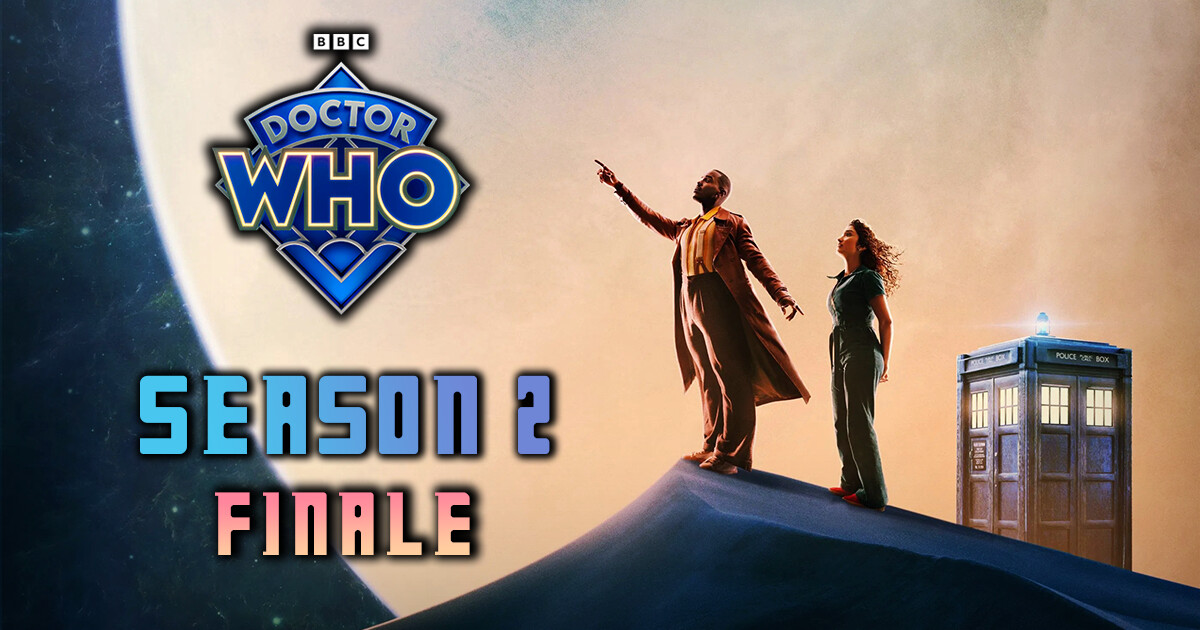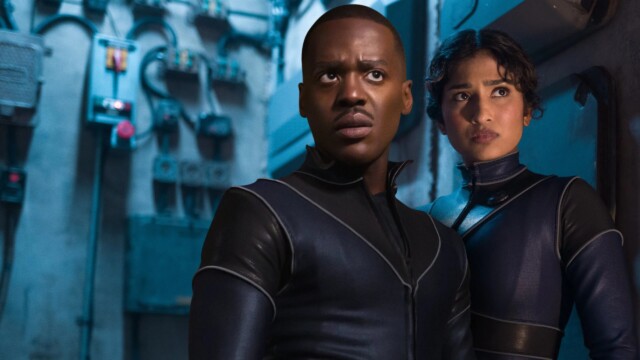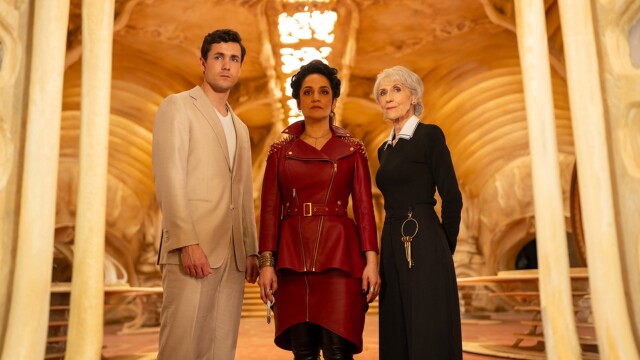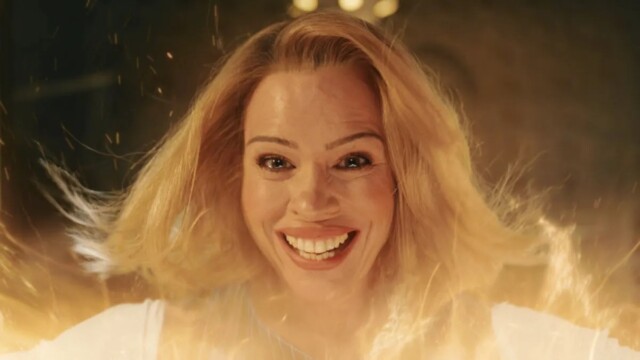‘Doctor Who’ Season 2 Finale: A Bittersweet Farewell

There’s something beautifully paradoxical about how Doctor Who ends its seasons every single time. As the TARDIS doors unfortunately close on the 15th Doctor’s final adventure, fans are left with that familiar bittersweet feeling that appears whenever there is a season finale or “regeneration moment”. For many, it is the day they are mourning a beloved incarnation while wondering what comes next. The 2025 season finale, “The Reality War,” was no exception. It didn’t just close a chapter. It blew the cover off the book entirely and began to write a new one with entirely new adventures on the horizon.
Ncuti Gatwa, who carried the mantle of the Doctor with an iconic and sexy charm, vulnerability, and brilliance, will be remembered as a fresh take on the character. But no one could have predicted how his departure would look. And with that, Doctor Who did what it always promised. It fundamentally changed and chose a different way to end this season.
[Warning: Spoilers from Doctor Who season 2 are below!]
Doctor Who season 2: the story
From the moment Ncuti Gatwa’s Fifteenth Doctor took his first full steps into the role, it was clear that this would be a very different kind of show from now on. Russell T Davies, returning with confidence and a modern edge, took on the Doctor, delivering stories that often felt like a fusion of classic legacy Doctor Who with a refreshed version of it. Episodes like “Wish World” delivered a fairy-tale story arc filled with emotions, past, future, and dreams. On the other hand, we had episodes like “Joy to the World,” which flipped expectations by exploring a situation where your emotions can destroy and at the same time rebuild you.
Belinda Chandra (Varada Sethu) was outstanding, and she was one of the most down-to-earth and logical companions ever. Her presence in the TARDIS and importance to the Doctor’s future were perfect. I can say that she’s on my list of best companions ever, definitely in the Top 5. Her story, even though it was crazy, was very well-written and wasn’t wasted in any way.
The companion from last season, Ruby Sunday (Millie Gibson), became more than a companion. She became a part of important stories this season. She was a part of episodes “Lucky Day” and “Wish World,” in which, if it wasn’t for her, some important events would not have happened. Her constant search for identity, with the mystery that is still surrounding her in the background, gave those episodes a certain amount of thrill and fun during this season.

Antagonists also took center stage in unforgettable ways. The unimaginable return of the Rani (the secret identity of Ms. Flood all along) was played at first by Anita Dobson with a mysterious and troubling performance. And finished with the fresh take on the character due to bi-generation by Archie Panjabi that let us have a villain who wasn’t just a wicked time-lord but a deeply ideological and strategic villain, obsessed with restoring the “purity” of Gallifrey, by rewriting time itself.
The main reason she was everywhere the Doctor went was only to find Omega, the ancient and half-mythic Time Lord, the first one, the founder, whose distorted sense of reality made him not just a threat to the universe, but to the whole race of Time Lords. All the episodes with Ncuti Gatwa as the Doctor built slowly toward “The Reality War,” an episode that tried, and in many ways succeeded, to tie the legacy Doctor Who lore, with the modern times to connect the fanbase, and to create a new legacy.
The Reality War’s importance
When you get to watch “The Reality War”, it doesn’t waste time. Within the first minutes, we’re dropped into a universe already being devastated and shattered. The whole civilization blinks out of existence as Rani’s twisted mind tries to destroy the reality around the Doctor. It’s a mind-bending episode, filled with emotional moments and high stakes, but at its core, it remains intimate. The Doctor confronts the Rani in her base, which reminded me of the old base of the Gallifreyan High Council. There’s a sense that she, like Omega, has lost track of her original goal, and she’s become what she claimed to fight. A god imposing order on chaos.
The episode’s turning point, and one of the most important for me, comes with the return of Jodie Whittaker’s 13th Doctor, who is an echo, or rather, she is taken from her timeline for a moment. Only to help the Doctor, and remind him what’s important in life. It’s a touching, quiet moment in an otherwise grand-scale episode, and it humanizes the Doctor in his darkest hour. To save the one person, he didn’t get to, he decides to trade his life for a life.

And so, he dies. But the regeneration starts to happen. As always, it has to be the most important moment of the episode. As light pours from his body, the galaxy shines from his energy, time slows down, and the Doctor is reborn. But instead of a new face, the audience sees a very familiar one. One with blonde hair, that confident smirk, and a bad wolfish smile. And now, we don’t know if Billie Piper is the new Doctor. Because one thing we didn’t see during the end credits is “Introducing Billie Piper as The Doctor”, instead it just says “Introducing Billie Piper”.
With every new Doctor, it was revealed that this actor is a Doctor. When John Hurt was revealed to be the War Doctor, he was named. The same goes for Jo Martin and every other actor. So, to truly confirm if Billie Piper is the new incarnation of the Doctor, we’ll have to wait a little longer. But thankfully, it won’t be that long as some people think.
The future of Doctor Who
If Doctor Who is about change, this finale indeed made some changes regarding the concept of telling new stories and bringing back old characters and previous Doctors. The introduction of a Doctor who resembles Rose Tyler is a storytelling curveball that fans and critics did not expect. As always with Russell T. Davies, everything he does has to make sense. Maybe the regeneration process itself evolved to a point where even the Doctor doesn’t have to think much to choose their face, just like with Peter Capaldi’s Doctor.
I think that everything may be connected to the Bad Wolf storyline, where Rose becomes this entity, the 9th Doctor (Christopher Eccleston), and to stop Rose from dying, has to absorb its power and regenerate. What is also very curious is that Russell T. Davies has remained cryptic in interviews, only hinting that Billie Piper’s return, whether as the next official incarnation of the Doctor or something more metafictional, throws the doors wide open for bold new narrative experiments.

Maybe it’s the first step to explaining Jo Martin’s Doctor and showing multiple timelines? Or maybe it’s an experiment to bring back old Doctors, even for one episode, like Peter Capaldi or Matt Smith to play the Doctor once again? Well, I have to say that I’m interested to see the real reason for Piper’s return, especially during the Doctor’s regeneration. It may be fun, but I don’t doubt that it will fit Doctor Who lore and everything that we know and love it for.
Final thoughts on season 2 and Ncuti Gatwa’s 15th Doctor
The 2023–2025 season of Doctor Who will go down as one of the boldest, strangest, and most emotionally resonant in the show’s 60+ year history for me. It was a fresh beginning that was meant to honor and keep the legacy of 2005’s Doctor Who. Ncuti Gatwa’s role as the Doctor may have only lasted two seasons, but what a run it was. It was full of heart, laughter, tragedy, and a beautiful sense of curiosity. His portrayal offered a vulnerable, deeply feeling Doctor, who can do and say things previous incarnations couldn’t.
Gatwa embraced the legacy of the Doctor, questioned his myth, and ultimately wonderfully played him, and let us shed a tear when we watched the Doctor sacrifice himself not to save the universe, but to let it go on living.
“The Reality War” gave us an ending that felt as if the walls between timelines and identities had finally broken. By allowing the Doctor to regenerate into a form that is part of his past yet wholly new, the show acknowledged its history while rewriting its future. In doing so, it reminded us why Doctor Who matters. We don’t love it just because of the monsters, or the time travel, or the clever dialogue. But because it dares to ask, over and over, “What if?”, or it helps us to enjoy and explore our own emotions, sometimes deeply hidden inside. And then it answers with a smile, a tear, and a brand-new face. The future is unwritten. And for Doctor Who, that’s exactly where it belongs.
Also check out: Doctor Who Series Discussion | The Cosmic Circle Podcast


